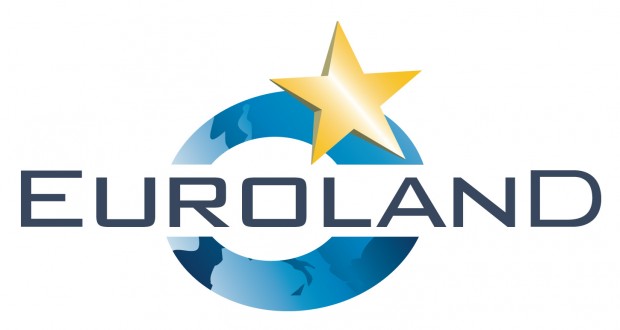The crisis of the euro currency has helped deploy the institutional embryo of the Eurozone: from the ECB to the Euro Summit via the Eurogroup, the EU and the Member-States have realized since 2009 that they had omitted to endow the Euroland, this new sovereign who appeared in 2002 in the EU, with a system of governance. Thus, neither the EU nor the Member States were able to make the necessary decisions, let alone implement them. So, the necessary mechanisms and bodies had to be created in an emergency. This was done, and it temporarily saved the euro.
« Temporarily », mostly because of the lack of democratic legitimacy of the decisions made by this famous « troïka » hastily gathered to take control of operations. That is how the crisis of the euro was somehow managed but the way the way it was managed to a huge political crisis of the Eurozone, resulting in euro-skepticism and a multi-national political crises – two levels (the EU and the Member States) in fact indirectly responsible for the decisions which were made. As a matter of fact, the public opinion should rather attack the Euroland’s actions in this case.
Clearly, the Euroland’s institutional embryo, which emerged as part of the euro crisis, must be imperatively endowed with a legislative body ensuring the democratic anchor of its decisions. That’s the reason why, at the beginning of 2014, we began to hear the German Finance Minister, Wolfgang Schäuble, request the creation of a parliament of the euro zone. But things are not as simple as that: are we talking about the creation of a new Parliament ex nihilo? based on what electoral system? what will happen with the European Parliament if the economic governance of the euro zone is attributed to a new legislative body? etc … And the fact is that, despite the striking power of a German Minister of Finance of the euro zone, ten months later, nothing seems to have come out of that idea.
Citizen movements, anti-austerity oriented or just willing to democratize the European decision-making system, would be well advised to unite their voices in order to demand trans-Euroland elections. That could definitely accelerate the transition.
More pragmatically, LEAP wants to suggest a compromise, allowing the current Parliament to stay at the heart of the European democratic system by making a small structural change: the creation of a Super-Committee of the Euroland within, which would become the democratic counterpart of the Euroland’s institutional system, including members of Parliament of the euro zone only (and possibly MEPs of candidate states for the euro, as observers), elected by all the members of the European Parliament at the beginning of their term (or at the creation of the presented Committee).
Despite the taboo surrounding the multi-speed Europe idea, the EU’s main aim is to provide the Europeans with a framework for enhanced cooperation. The European Parliament, more than any other European institution, as the representative body of the Europeans, must integrate this European reality into its structure.
So far, the European Parliament has been nothing but a national super-Parliament. By incorporating the multi-speed dimension to its structure, the European Parliament could provide a kind of model of institution needed by the supra-national entities in order to get democratized.
The idea is fruitful and could allow the emergence of other super-committees, containing members of Parliament coming from the relevant countries concerned by a certain issue. We, of course, think of a Super-Schengen Committee, for instance, but we can also imagine working groups gathering MEPs of countries and deciding to work together on certain enhanced cooperation projects; and, this time, we think of the European defense, for example.
The multi-speed Europe is a Europe on the move, a geographically and culturally coherent space in which groups of Member States can initiate dynamics and, depending on the success and relevance of these dynamics, have other states join them. This Europe exists. The European Parliament must reflect in its structure this European nature, in order to see these constructive and innovative dynamics rooted in the European citizenship composition. Such a Parliament could even initiate itself some axes of enhanced cooperation.
If the European Parliament fails to do that, or something similar, like all institutions following the national model of the nineteenth century, it is doomed to the same fate: creation, initiation, emergence of first dysfunctions, inability to reform, contribution to the general dysfunctioning of the entity to which it belongs, risk of system explosion, questioning, creation of a new institution, and loss of influence … and the same goes for the new institution.
What if the European Parliament were the first institution to integrate a principle of social Darwinism into its structure: the adaptability?


 LEAP2040 Toutes les informations et archives Europe2040
LEAP2040 Toutes les informations et archives Europe2040



